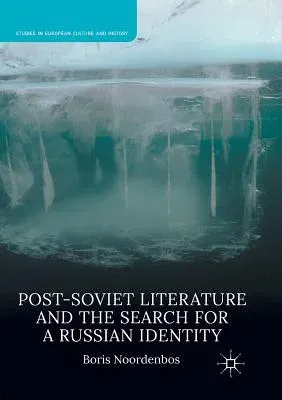Boris Noordenbos
(Author)Post-Soviet Literature and the Search for a Russian Identity (Softcover Reprint of the Original 1st 2016)Paperback - Softcover Reprint of the Original 1st 2016, 27 May 2018

Qty
1
Turbo
Ships in 2 - 3 days
In Stock
Free Delivery
Cash on Delivery
15 Days
Free Returns
Secure Checkout
Part of Series
Studies in European Culture and History
Print Length
232 pages
Language
English
Publisher
Palgrave MacMillan
Date Published
27 May 2018
ISBN-10
1349955574
ISBN-13
9781349955572
Description
Product Details
Author:
Book Edition:
Softcover Reprint of the Original 1st 2016
Book Format:
Paperback
Country of Origin:
NL
Date Published:
27 May 2018
Dimensions:
21.01 x
14.81 x
1.3 cm
ISBN-10:
1349955574
ISBN-13:
9781349955572
Language:
English
Location:
New York
Pages:
232
Publisher:
Weight:
294.83 gm

